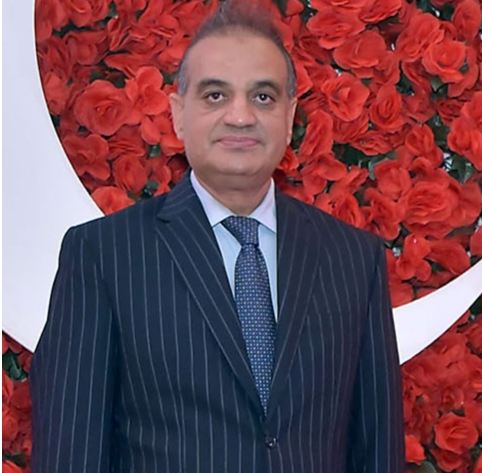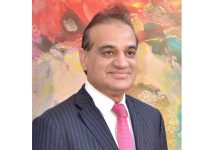Opinion
Ansar Mahmood Bhatti
The ongoing political crisis in Pakistan, particularly the systematic marginalization of the Pakistan Tehreek-e-Insaf (PTI), raises serious concerns about the future of democracy in the country. The recent court verdicts sentencing and disqualifying PTI’s top leadership from assemblies, coupled with the Election Commission’s hasty actions, suggest a deliberate attempt to sideline the country’s popular political party. While PTI’s actions on May 9—attacking military installations—were indefensible, the manner in which the party is being dismantled is undemocratic and counterproductive.
This approach does not serve the long-term interests of democracy. Instead, it deepens political instability, fuels public resentment, and sets a dangerous precedent where any political party in power today could face similar treatment tomorrow. The ruling Pakistan Muslim League-Nawaz (PML-N) must realize that political victimization is not a sustainable strategy. History has shown that suppressing popular movements only strengthens them in the long run.
PTI’s leadership, including its chairman Imran Khan, has been sentenced in multiple cases, ranging from corruption allegations to charges related to the May 9 riots. While the legal process must be respected, the speed and timing of these verdicts raise suspicions of political engineering. The Election Commission’s swift moves to disqualify PTI leaders further reinforce the perception of bias.
Legal accountability is essential in a democracy, but when courts are seen as tools for political engineering, public trust erodes. The right to appeal exists, but given the current political environment, many fear that justice may not be impartial.
PTI remains one of the most popular party in Pakistan. However, instead of engaging with it politically, the state has chosen to suppress it through legal and administrative measures. Banning PTI’s electoral symbol, arresting its workers, and forcing leaders to quit the party under pressure are tactics reminiscent of authoritarian regimes, not democratic systems.
If the goal is to establish genuine democracy, political parties must compete on a level playing field. Eliminating the largest opposition party from the electoral process undermined the very essence of democracy.
There is no justification for the attacks on military installations on May 9. Imran Khan’s statement that such a reaction was “natural” if he was arrested was irresponsible and further inflamed tensions. A true statesman would have called for restraint. However, the state’s response—mass arrests, enforced disappearances, and media blackouts—has been disproportionate.
Moreover, the May 9 episode was not solely PTI’s doing. Non-PTI elements exploited the chaos, as often happens in politically charged environments. The state’s failure to investigate all culprits fairly has reinforced the narrative of selective justice.
Defence Minister Khawaja Asif’s repeated statements about Pakistan’s “hybrid system” acknowledge the military’s role in politics. By admitting that both political forces and the establishment are stakeholders, he inadvertently confirms what many have long suspected: that democracy in Pakistan is not fully sovereign.
However, his candor has reportedly angered the military leadership, which prefers to keep its political influence behind the scenes. Some reports suggest pressure on Prime Minister Shehbaz Sharif to remove Asif from his position, indicating the military’s discomfort with public discussions about its role.
The PML-N cannot absolve itself of responsibility for the current political crisis. By aligning with the establishment to suppress PTI, it is setting a precedent that could be used against it in the future. Rana Sanaullah and Khawaja Asif have occasionally expressed concerns, but their voices are drowned out by hardliners within the party.
If the PML-N believes it will remain immune to similar tactics in the future, it is mistaken. Political instability harms all parties, and a weakened democracy benefits none.
Pakistan’s economy is surviving on IMF bailouts and loans from friendly nations—a unsustainable strategy. Without political stability, investor confidence will remain low, and economic growth will stagnate. The current crackdown on PTI is exacerbating polarization, making it harder for any government to implement necessary reforms.
History shows that nations thrive when political inclusivity, rule of law, and democratic norms are upheld. Pakistan’s leadership must recognize that sidelining a major political force like PTI will only lead to greater instability.
The way forward is not through suppression but through dialogue and political reconciliation. The state must ensure fair trials for all, including PTI leaders, and allow them to participate in elections without coercion. The PML-N and other political stakeholders should push for a democratic framework where all parties compete freely.
If PTI is indeed unpopular, let the people decide its fate at the ballot box—not through judicial and administrative maneuvers. Democracy cannot flourish when the largest opposition party is systematically dismantled. The powers that be must realize that while they may erase PTI from the political scene, they cannot erase it from the hearts of the people. And that should worry them more than anything else.
Pakistan’s future depends on stable, inclusive politics—not witch hunts. The choice is clear: continue down the path of confrontation and instability, or embrace true democracy for lasting peace and prosperity.

















